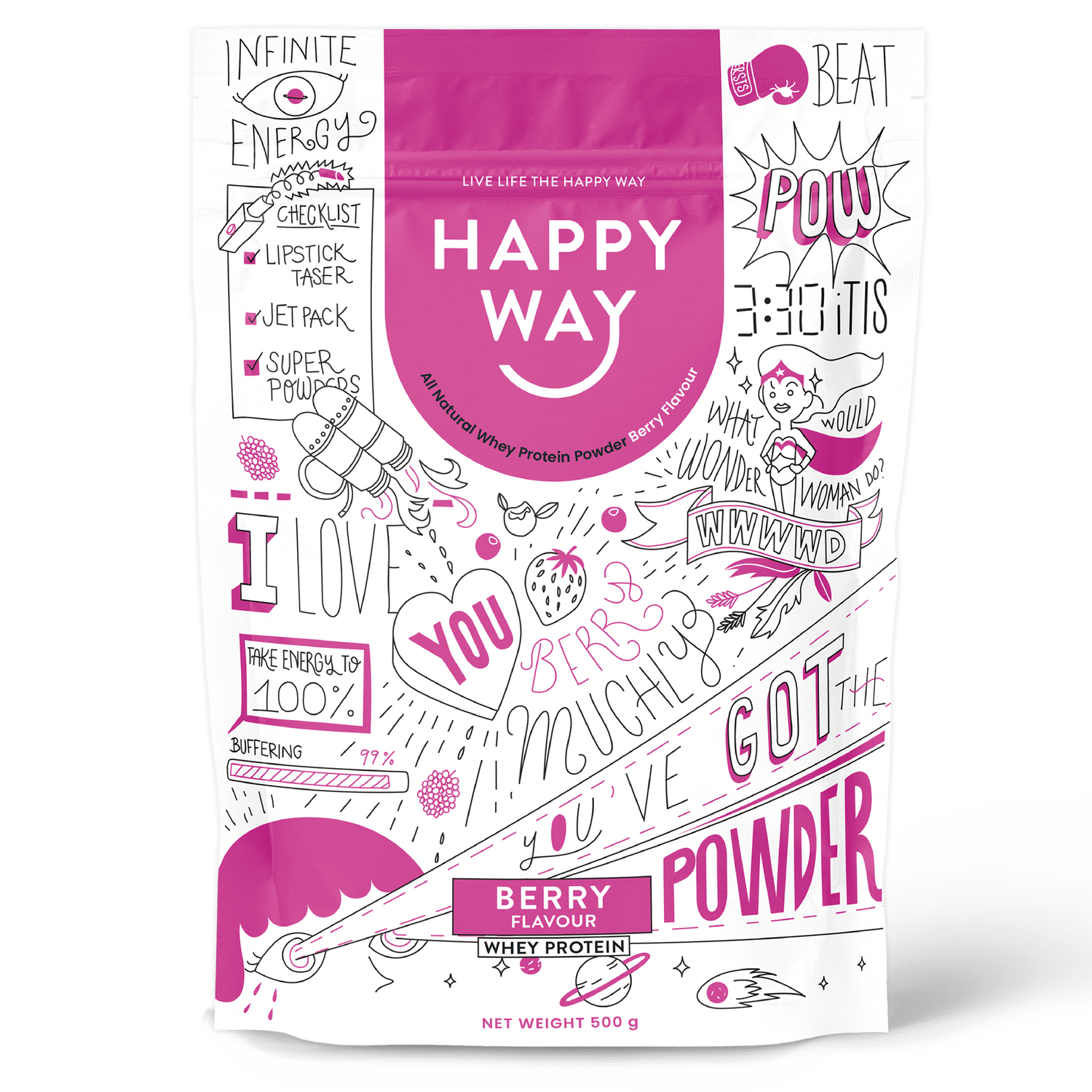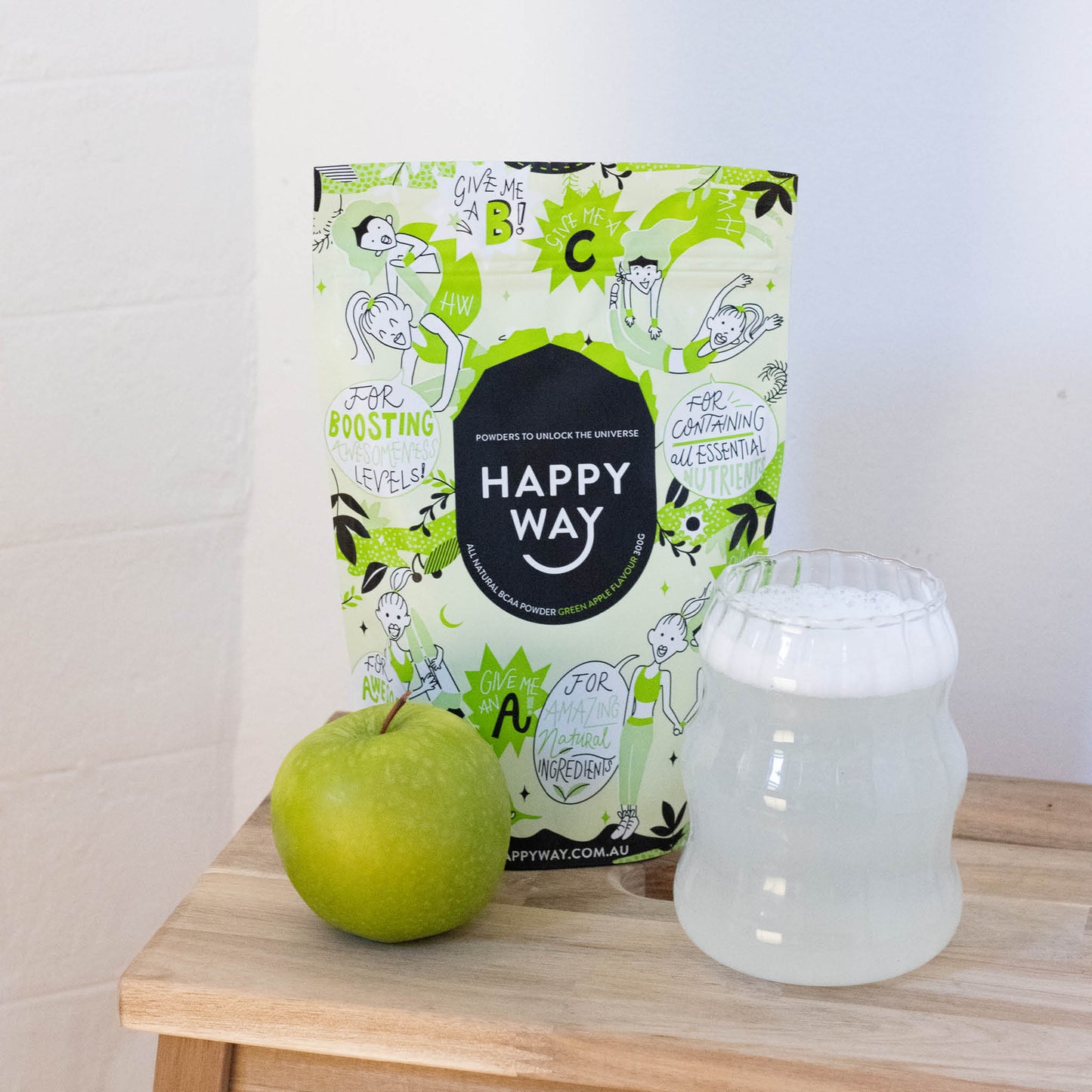If you are new to the world of health and fitness, then the acronyms and supplements repertoire alone could leave you running in the opposite direction. Overwhelming, yes, but get to know your BCAAs from your HCA’s and protein sources and you are set to unlock a whole universe of added benefits. I mean if we could really liken using our products to a song it would be the Bag Raider's Shooting Star.
Contrary to popular marketing jargon, protein powders don’t just exist to help build muscle, no. A dedicated approach to your supplements range means boosting your endurance and energy levels, helping speed up your muscle synthesis and repair process, better sleep, healthier skin, hair and nails and the ability to regulate your blood sugar levels. This means not undoing all the hard work you have put in at the gym by snacking on nutrient empty foods throughout the day.
Now if you are new to the fitness world, and wondering what the difference between BCAA’S, protein powders and fat burners is, we’re here to break it down for you.
Let’s start with amino acids
Amino Acids are organic compounds that make up proteins. Put in the simplest terms, amino acids are the building blocks of protein and all tissue in our bodies. Contributing to the development of protein within the body, amino acids help repair and encourage the growth of healthy tissues in muscles, bones, skin and hair and help our body eliminate waste and deposits by aiding a healthy metabolism. There exist 22 amino acids, of which 9 are essential, meaning our body is unable to produce them naturally and we must obtain them through our diets. Foods and supplements which contain all of these 9 essential amino acids are called complete protein sources. They include eggs, beef, quinoa, fish, chicken, chia seeds and soy. However if you exercise or don’t have an adequate intake of amino acids through your diet, then supplements may be necessary.
POST WORKOUT
Protein powder explained
Protein is a macronutrient that our body uses to build muscle mass and other body tissues. When we think of protein we often think of muscle synthesis however protein provides our body with all the vital amino acids required for us to function at an optimum level. Ensuring we meet our daily protein needs is crucial not only for muscle repair and growth but it is also crucial to our body’s ability to produce enzymes and hormones and to be able to transmit nerve impulses. Put simply, protein is the building block of all life matter and without it we aren’t able to be our healthiest selves.
Who needs protein supplements?
As one of the most misunderstood supplements on the market, protein powder is often grouped under the umbrella of health and fitness. However, the fact is that we all need adequate protein in our diets to help regulate our blood sugar levels, to keep us feeling full and to help our body repair, restore and function at its optimum best.
If you are unable to reach the recommended 90 – 120 grams of protein a day through food intake, then protein powder supplements offer an easy and fuss free way to incorporate all the essential amino acids your body needs into your diet. Protein powders can be blended into delicious smoothies, added to pancake mixes, made into protein balls, the opportunities are endless. For vegetarians and vegans, protein powders offer an easy way to consume all the necessary amino acids your body needs without having to mix a variety of different plant based sources.
INTRA
Branched-Chain Amino Acids
Branched-chain amino acids are made up of three essential amino acids- Leucine, Isoleucine and Valine. They aid the body in producing insulin, which helps the body turn sugar into energy. So put simply, BCAAs are a type of amino acid, and amino acids are what make up proteins, and proteins are what make up your muscle tissues! So this may lead you to ask, if I already consume protein powder why do I need BCAAs?
Branched-chain amino acids make up approximately 35% of your muscle mass and are depleted quicker than any other amino acids when you exercise. Consuming BCAAs offers the quickest way to boost your muscle endurance and recovery as these three amino acids are not metabolised in the liver first and go straight to your muscles. Aside from offering a more concentrated dose of amino acids when you are exercising, BCAAs are also easier to digest and stomach during exercise.
So when should you consume amino acids?
While BCAAs can be taken both prior to and following your workout (within a 30 minute time frame on either end), for optimum results they should be consumed during your workout. Mixing 10grams of BCAA with water will not only help build endurance and muscle synthesis but it also provides a refreshing drink for your workout session.
PRE WORKOUT
Now let’s talk fat burners
Fat burners are some of the hardest working supplements in your repertoire. Put simply they work to boost your metabolism, energy levels, endurance and assist your body in burning more fat. However, if you think this supplement provides a magic solution to your weight loss needs, then you are mistaken. These supplements are designed to assist a well balanced diet and exercise. No magic pills, sorry ladies.
How do fat burners work?
Key ingredients used in fat burners are designed to stimulate hormonal reactions in the body and to begin breaking down fat stores to be used as fuel. One of the key ingredients in fat burners, caffeine, helps the body burn fat stores by boosting your metabolism. In the body, caffeine increases the breakdown of fatty acids that reside in the adipose tissue otherwise known as stubborn belly fat. Once broken down, these fatty acids enter the bloodstream and turn into energy.
When and how should you take your fat burner?
If your idea of exercise is a nice walk along the beach every so often, then fat burners will be best consumed in the morning. Swap it out for your morning coffee and kick start your metabolism. If you are however looking to boost your endurance and exercise, then you should be consuming your fat burner as a pre-workout 30 minutes before your exercise session.
Looking to maximise your gains with the use of all three?
Now that we have distinguished the difference between protein powders, BCAAs and fat burners, it’s easy to see how they in fact all serve a different purpose. Although they all contain amino acids, if used properly they can all deliver results and help maximise gains at the gym in different ways.
Still not 100% sure…
For endurance and energy during your workout opt for 10grams of fat burner 30 minutes prior to your session.
To boost your metabolism throughout the day, take your fat burner in the morning as an alternative to coffee.
For endurance and muscle growth, take your BCAA during your workout.
If you are looking to go the extra mile and really speed up your muscle growth and recovery, drink a BCAA within 60 minutes of completing your workout as well.
Wanting to promote stable blood sugar levels and satiety throughout the day? Make sure you are consuming 2 servings of protein in the form of a smoothie or protein shake. The recipe opportunities are endless…
Looking to promote muscle repair and synthesis, then make sure you are consuming between 90 – 120 grams of protein a day, a serving of which should be consumed within 60 minutes of completing your workout.
If you are a fussy eater, a vegan or vegetarian, ensure your body is receiving all the vital amino acids it needs to function at its optimum level with 2 servings of protein powder a day.











